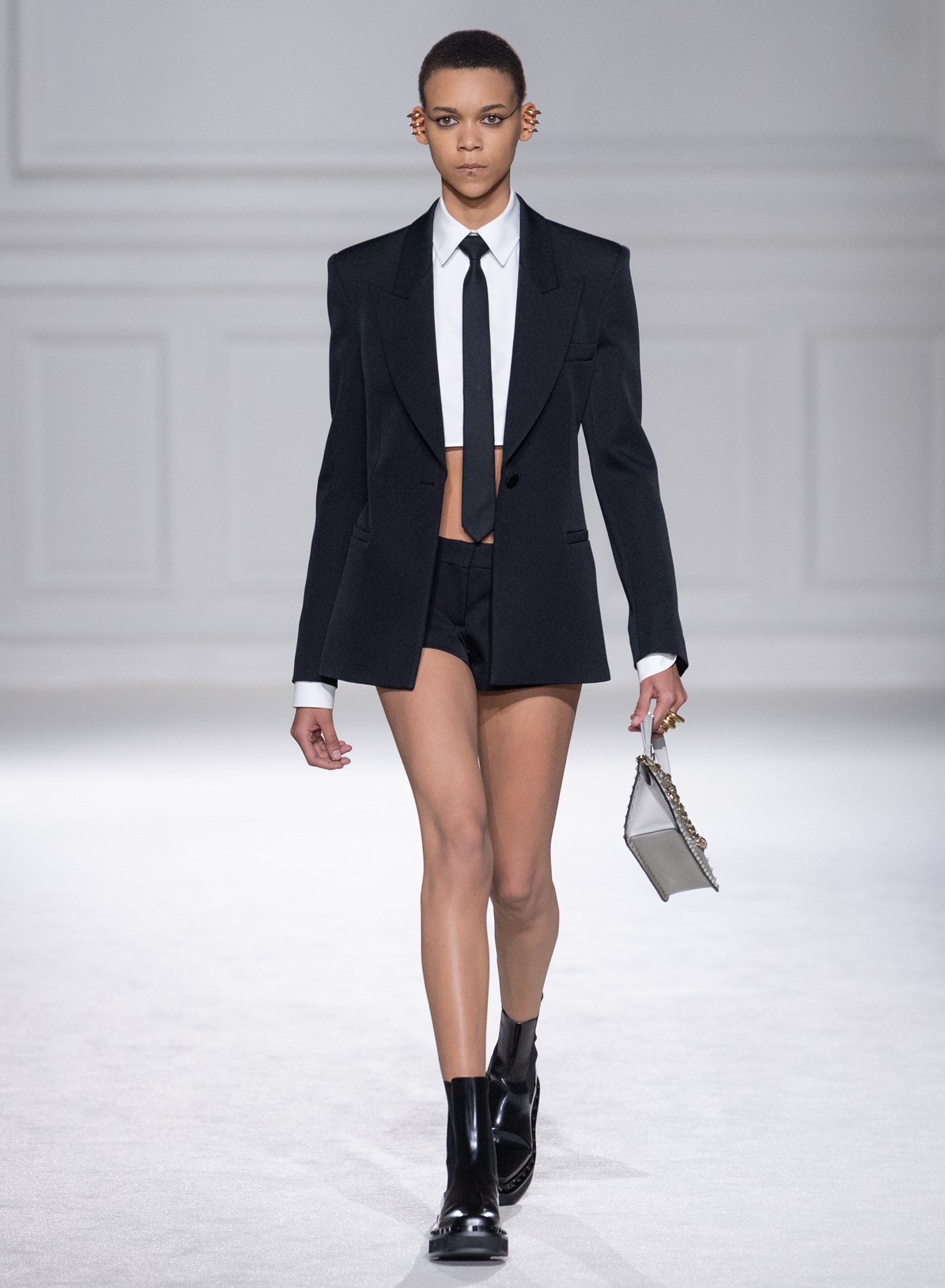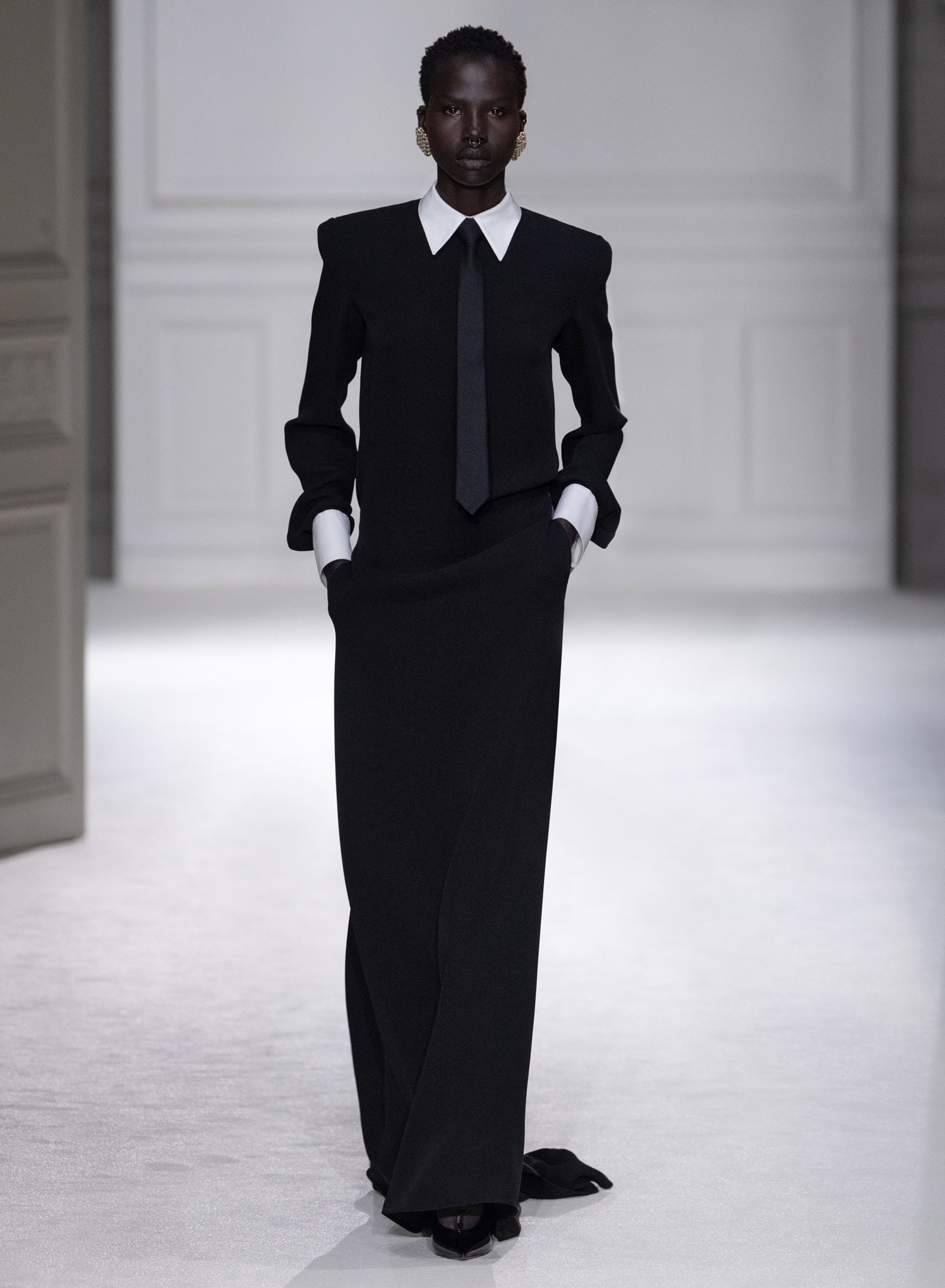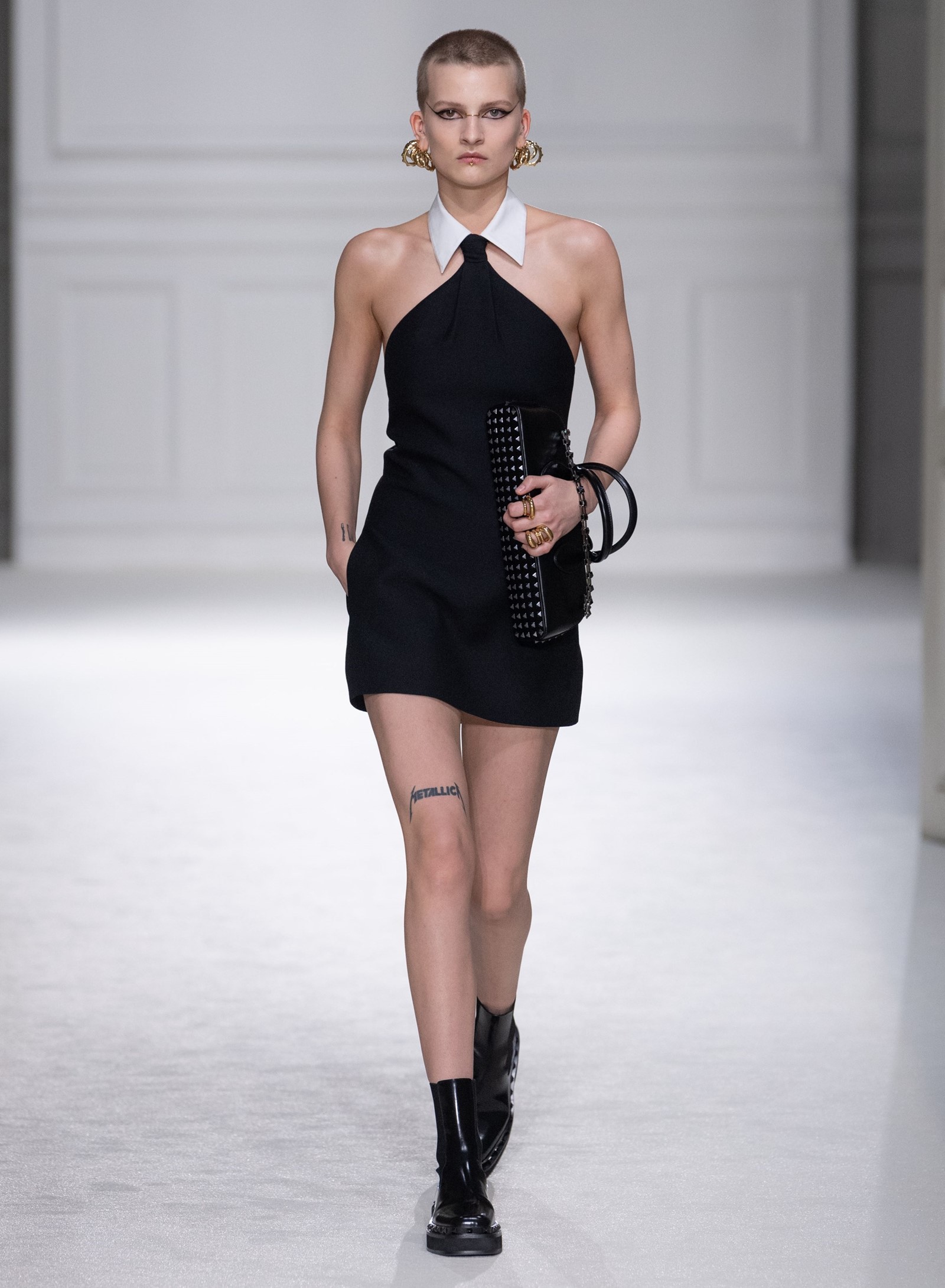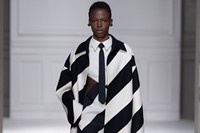Pierpaolo Piccioli is an exceptional designer, in that his interests and their expression through his Valentino clothes can roam far and wide, or be laser-focused on the full aerobic exercise of a single good idea. This time last year, he did that through his Valentino Pink PP collection, inspired by monochrome artists, repainting the world with rose-coloured glasses – and inventing a colour. No small feat, but it did focus his collection sharply. For Autumn/Winter 2023, there was again a focus – he titled the collection Black Tie and showed examples of that with every one of his 73 looks.
OK, I lied. Some were white – one was a curious, succulent lettuce green – and a few morphed into dresses from below a Windsor knot. But they were still present. Black tie was, Piccioli said, a code that could be subverted and challenged – his collection took the notion of the most formal form of dress, and applied it to an entire spectrum of clothing, for every day. To further underline the point, his punkish models marched through the pristine white salons of the grand manse of the Hôtel Salomon de Rothschild – more used to seeing Valentino’s couture collections gliding through their enfilades. Formality is a notion innately tied to Valentino’s heritage: can you ever remember seeing Valentino Garavani himself without a tie?


Of course, a necktie – for it was those, rather than the bowtie that Piccioli examined – actually represents far more than just formality. For Piccioli, it represents a symbol of masculine power, an emblem of orthodoxy and restriction – all ideas he wants to upend and destroy, values that need to be replaced. But perhaps that has already happened – he recalled how his own daughter was attracted to a shirt and tie in his wardrobe, a uniform of conformity she had never been forced to wear. So, the sign lost its sign value, and merely became an exciting, new piece of clothing to try.
That is a fascinating exchange – one that feels relevant. Plenty of designers have recalled how younger and younger customers are buying and wearing suits and ties, revelling in their advantages – the confidence afforded by the cut, the feeling of being dressed-up, the importance the look still semaphores – with none of the associated cultural baggage of an older generation.
So Piccioli built his collection around the tie, finding endless variations in its wearing and in our associations. The simplest actions, within that framework, could have the maximal effect: team with shorts, and a white shirt and tie feels schoolboyish, youthful, energetic and free; switch the shirt to red and you have immediate shades of Kraftwerk, Germanic techno, the post-punk moment of the early 1980s – which, incidentally, was an inspirational touchpoint for Piccioli’s Spring couture show. Flow it into a dress and the tie all but disappears; team it with a skirt and there are throwbacks to early 20th-century women, whose sporting of a then-lost universally masculine accessory expressed their own force of character, a need to be taken seriously, an urge for freedom. And when worn with elongated evening gowns, the tie suddenly became a simple accessory to give a frisson of newness to a classic style, a point of interest and departure.
What this show actually was, was an exercise in fashion – in meaning embedded in our language of clothes, in how the smallest gesture can be harnessed for great impact. Piccioli’s Valentino collection was an exhaustive, whirlwind exploration of the codification of fashion, what it can still say, and how we can make it speak differently, if we truly understand and embrace its power.






